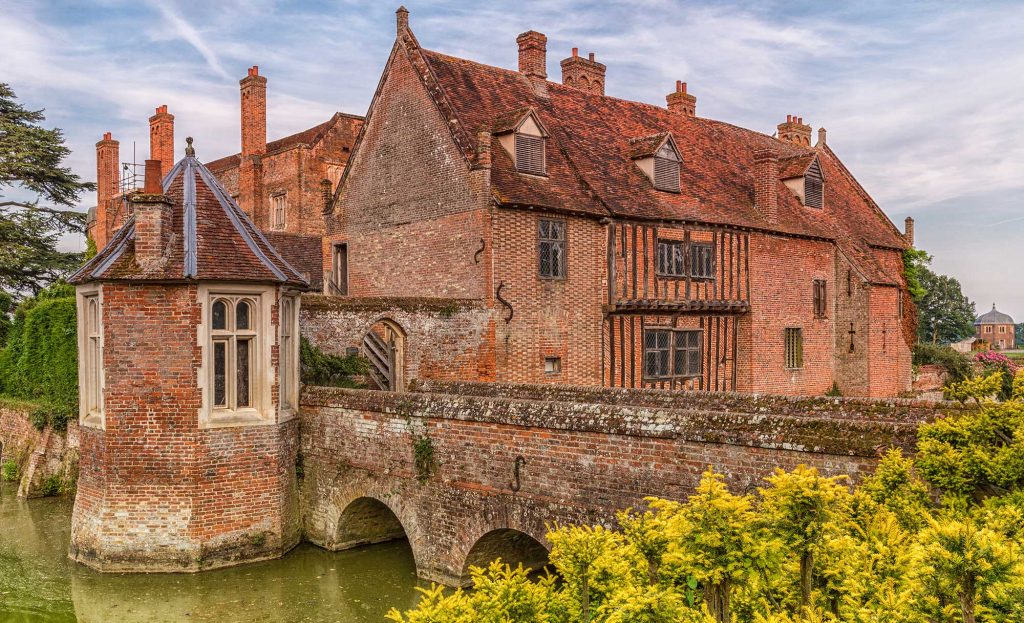Tuesday, January 17, 10:00 am – 11:30 am GMT – Garden Archaeology: Designed for Display: Medieval and Tudor Moats, Online
This is the third series of Gardens Trust talks exploring how archaeology helps the garden historian find vital evidence on the ground which then informs future restoration projects and garden management plans. Our distinguished and popular speakers will be reporting mainly on current and on-going archaeology at various sites and with an emphasis on water features. On January 17 we will hear Designed for Display: Medieval and Tudor Moats, with Edward Martin.
Moated houses may have been conceived in imitation of castles and their defences, but from very early on they became vehicles for the display of status and wealth, with decorative embellishments and additions reaching a climax in Tudor times. Suffolk, with more than 900 examples, has one of the greatest concentrations of moats in England, and it will form the focus of this exploration of the origins of moats and their development as decorative settings for houses.
Edward Martin is the chairman of the Suffolk Gardens Trust and a vice-president of the Suffolk Institute of Archaeology and History. Now retired, he worked as an archaeologist with Suffolk County Council for many years, specializing in prehistory and historic landscape studies, and has lectured widely on the archaeology, history, landscape, buildings and gardens of Suffolk. His published works cover a diversity of subjects, from Bronze Age burial mounds, through medieval field systems to 18th-century gardens.
£5 through Eventbrite. Register HERE. Attendees will be sent a Zoom link 2 days prior to the start of the talk, and again a few hours before the talk. A link to the recorded session will be sent shortly after each session and will be available for 1 week. That way you don’t have to get up so very early here in the US.


